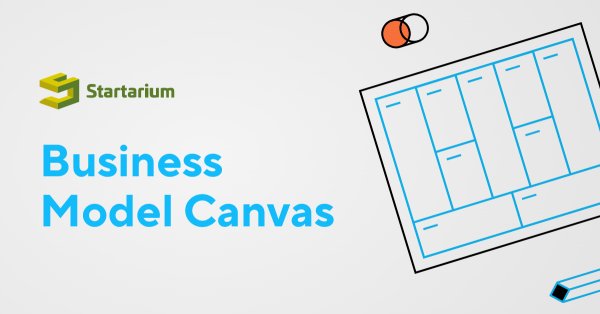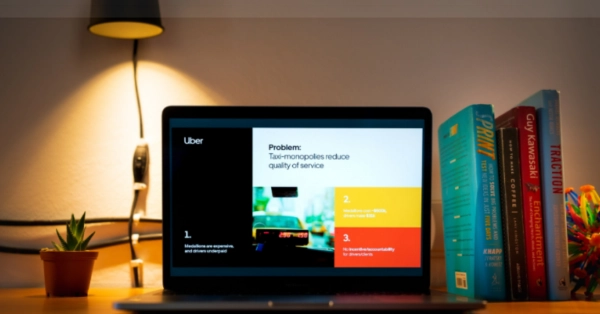The pandemic made us understand or reconsider fundamental aspects of our lifestyle. Among them- how we perceive the way we work, what motivates us, how good we are at maintaining that work-life balance, and so on. Forced by the sanitary crisis, many businesses have been transitioning to online, fully remote working.

As things slowly get back to normal, remote working is here to stay. Not all people want to go back to their office and hybrid work seems to be the next big trend- the next great disruption. Getting a taste of this flexibility, the vast majority of people would like to continue working remotely at least some of the time for the rest of their career because of the obvious advantages of this working style: the ability to have a flexible schedule, as well as the flexibility to work from anywhere.
Despite it not being a new thing, the trend of workers taking residence in other countries, as digital nomads, has been reinforced by the outbreak. And this digital-nomad movement will continue to accelerate in the years to come, according to Forbes. Living and working in different places is bound to broaden our perspective, helping us develop as a person. Plus, there are other obvious advantages: you can work from your dream destination or carry on with your schedule from a different city or country each month. If you work in a creative industry, like fashion, design, or advertising, for example, you may have been longing for this opportunity for a long while. Now it’s your chance to take that step and set up your business in a new country.
But before you get overly enthusiastic, make sure you’re well aware of “what you’re getting yourself into”. This is why we have put together this checklist with things worth knowing before moving your operations to another country.
Make a roadmap for the future.
It all starts with the big “why”: why have you chosen that particular destination? Is it because taxes are lower? Is it because you think the local market would be more receptive to what you have to offer? Or maybe because you’ve heard people speak fondly of that country? Regardless of what made you decide to relocate, begin by planning ahead:
- Get to know the country you want to move to: the cultural norms, the political and economic climate, and so on.
- Instead of looking at the GDP as an indicator for growth and economic stability, Investopedia encourages you to take the GPI (Genuine Progress Indicator) into consideration. This is because it takes into account multiple variables, such as income distribution, education rates, crime rates and even pollution or changes in leisure time.
- Try to get in touch with expats living in that country- they will be a valuable cultural bridge between you and your new country. Look for Facebook groups and prepare a list of questions- they are likely the best prepared to provide you with the necessary answers, since they’ve once been in your shoes and faced similar challenges.
- Look for cost-effectiveness: look up the price for rent and utilities in different cities of the country and see which one is the best suited to accommodate your needs.
- Determine the budget for the activities you will be conducting and consider this wise piece of advice from Money Crashers: when making your projections, be conservative on estimating revenues and liberal when estimating expenses.
- Copyright and copyright contracts: you should also know that the issue of intellectual property is treated differently across countries. Here you can find a broad overview of the concept from the World Intellectual Property Organization and we encourage you to skim through the content of the website and keep digging in order to be prepared for the moment you start doing business in a foreign country. Moreover, in countries such as Romania, if you work in the advertising industry, you can hire professionals such as copywriters or graphic designers based on contract copyright laws and a type of contract that largely differs from those created based on the general labor laws.
Think about the costs of setting up that business
- Depending on what type of activity you’re going to undertake, apart from legal fees and other taxes, you will need to think about the infrastructure (both the physical and the digital one) and suppliers. If you’re a designer working in the fashion industry, you may need fabrics for your clothes or qualified people to work in your workshop- make sure you’ll find what you need and that the transition will be smooth.
- Resolve logistics issues before setting up your shop or registering as an authorized person/sole trader. There may be regulations that affect the free flow of products within and outside the country, as well as fees, duties, and export taxes.
- Consider getting a good attorney and finding a good accounting & bookkeeping firm to make sure you follow all the tax laws.
- Apart from taxes, there might be other issues arising while setting up a business in a foreign country. For example, some countries limit property rights for foreigners. You may need a physical location and a real address linked to your name where you can receive your mail. In some instances, this will also be necessary in order to complete legal documents, even though you will be working fully remotely.
- Will you be exporting or importing goods? Then you should research the international money transfer options, since exchange rates change quickly, and the foreign exchange market can be very volatile. Normally you should be able to work this out with your current bank and send/receive money across the border but in most instances, you will be met with huge fees and a delay of at least several days until the payment is completed. Consider other options as well, such as (but not limited to) Paypal, Skrill (formerly Moneybookers), and Payoneer.
- You may also need to open an account at a local bank to pay your taxes and your employees (if you plan on hiring people from that specific country). This is another reason why you need a good accountant, or a lawyer specialized in finances.
- Look for tax-friendly places and funding possibilities for your business project.
There is no doubt that apart from the beauty of the place, another significant aspect that influences the decision of people to set up their businesses in other countries: how tax-friendly they are. Here you can find a list of the most and least tax-friendly countries around the world.
Moreover, some countries are facing difficulty to attract foreign investors or businesses. To compensate for that, the governments will offer potential tax cuts or grants for entrepreneurs so that they will consider starting a business in their countries.
Depending on where you’re coming from and which country you’re relocating to, you may have access to European financial support or funding programmes to help you set up your business. This is a crucial aspect because, apart from the financial benefits, through these programmes you will also gain the possibility of networking and getting in touch with key actors from your field who will help you grow and become more resilient in front of change. Here you can find the funding & tender opportunities from the European Commission- you may want to save this page somewhere and check for regular updates in case your main interest is in European destinations.
Finally, don’t look specifically for places with cheap labor. This move may have hidden costs in other aspects of your activity and, at the end of the day, you get what you pay for. Ideally, you may want to look up places that match all your criteria AND offer qualified personnel at a reasonable cost.
Final words
Starting a business is never easy. But setting up a business in a foreign country can be even more difficult. However, in many cases, the advantages outnumber and outrun the disadvantages. With this new trend of hybrid or fully remote working, many people choose to relocate and work from the places that best fit their expectations and lifestyle. Businesses need to be just as flexible and laid-back as people are. Don’t be discouraged by our checklist: it’s not meant to prevent you from moving to another country- it’s merely an instrument to set you up for success.
Opening a business in a new country comes with plenty of advantages too: it means access to different opportunities and networks of professionals from your industry, to a potentially more receptive market, a more relaxed economic environment, and access to a bigger talent pool. So do your due diligence and choose what’s best for you, your wellbeing, and the prosperity of your business.























